What Is VPN Encryption And How Does It Work?
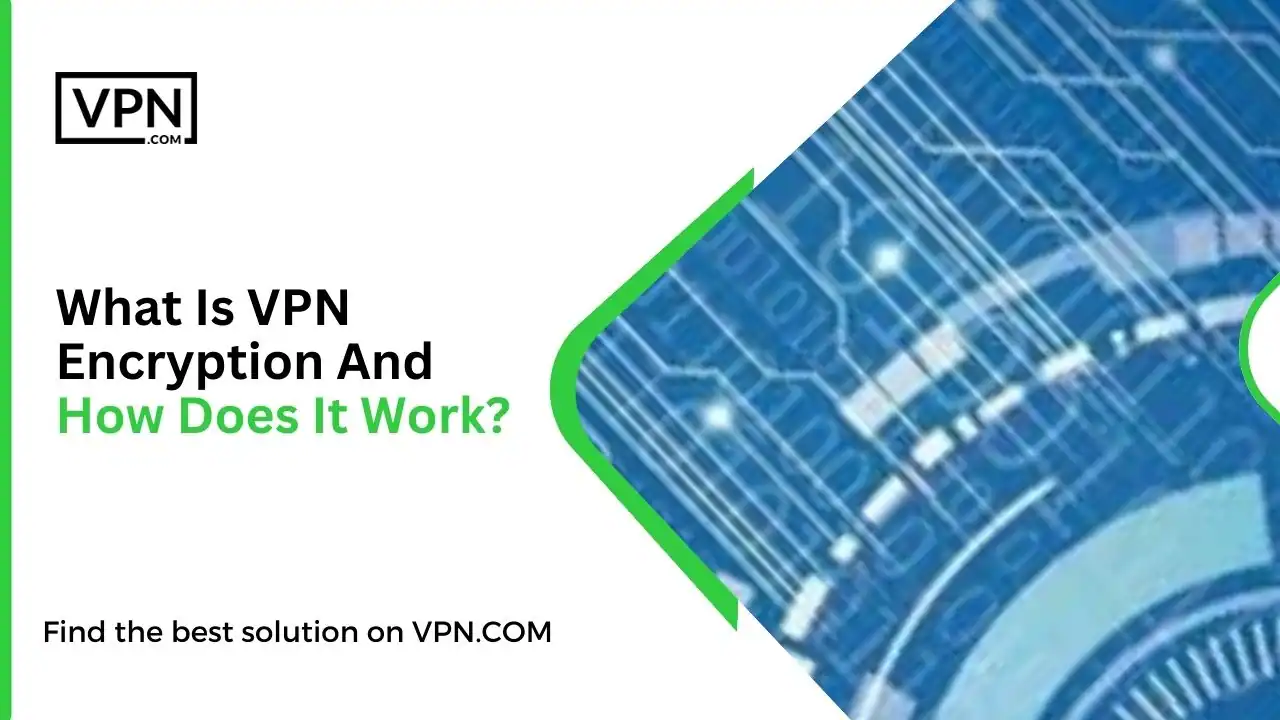
Have you ever thought about whether working on the Internet is safe or not? Whenever you go online your internet activity will pass through a company that we call “Internet Service Provider (ISP)”. It is like a middleman. So if you want to visit a website – first you have to send a message to your ISP and then they will guide you there. However, what does it mean then? It means that the ISP will see whatever you are doing on the internet.
It tells us that nothing can really stop the ISP from watching and remembering your online actions. They could even sell your information to a third party; Advertisers. However, there are some trustworthy ISPs that are going to keep your data safe. But the issue is that those are very rare. Even if you find an ISP like that, the government can ask them to share your online history with them.
What is VPN?
A Virtual Private Network is like a secret tunnel for your online activity. This tunnel is going to hide your data and keep your location a secret. Now think of it as a special car that is going to drive you safely from one place to another without anyone seeing you. VPN Encryption is going to keep all your activity safe from third parties.
Purpose of a VPN
Many people who use VPN Encryption don’t even know the purpose of it. Well, we think that it is important to know about software before using it. However, the main purpose of the VPN is to provide you with privacy and anonymity online by creating a private network from a public internet connection. If you are an Apple user, you might want to check out VPNs for iPhone to ensure your device is secure and your data is protected.
What Is Encryption?
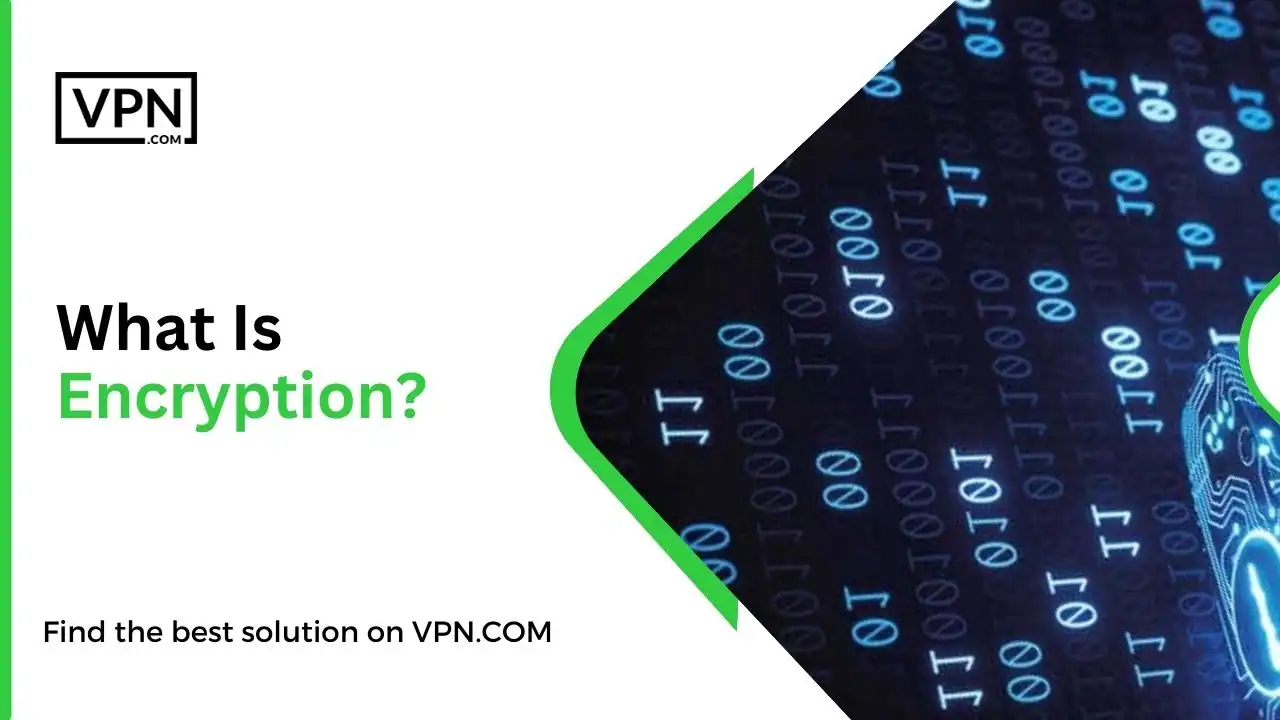
Encryption is just like turning information into a secret code. Those people who know how to decode are the only people who can understand it. This is very essential if you want to stay safe in the digital world. They basically act like a shield for our private details.
We use encryption to keep data safe on our computer and when we are sending it online. You can think of it as a secure vault for online shopping payments or private messages. So, why do we need encryption? Because it makes sure that our info stays safe, It will also ensure that we are talking to the right person online. It will confirm that messages are sent and received properly.
In easy terms, we can say that encryption is like our digital lock and key. They keep our online world safe

Get Started w/ NordVPN Today
- Top-rated VPN for OS unknown
- Ultra-fast speed in US in 2024
- Save 69% off with VPN.com Discount
- Plans starting at $2.99/month
- Rated 4.5/5 on Google Play with over 825,000 reviews
- Rated 4.7/5 on Apple App Store from 6,600 users
What Is The Difference Between VPN and Encryption?
We know that VPN and encryption might seem similar but in actuality they are not. Think of your VPN as an umbrella that uses various tools. It includes encryption that will keep our online actions private. However, when we talk about encryption – It is basically a single tool that will turn your data into a secret code. This secret code can be only unlocked by a special key.
Do you need a more clear image? Now imagine that VPN is your home’s safety plan. It can contain your alarms, sturdy locks, or even a protective pet. These are the combined safety measures by using which a VPN will keep you secure online. However, encryption acts like one of those strong locks.
What Encryption Methods Are Used By VPNs?
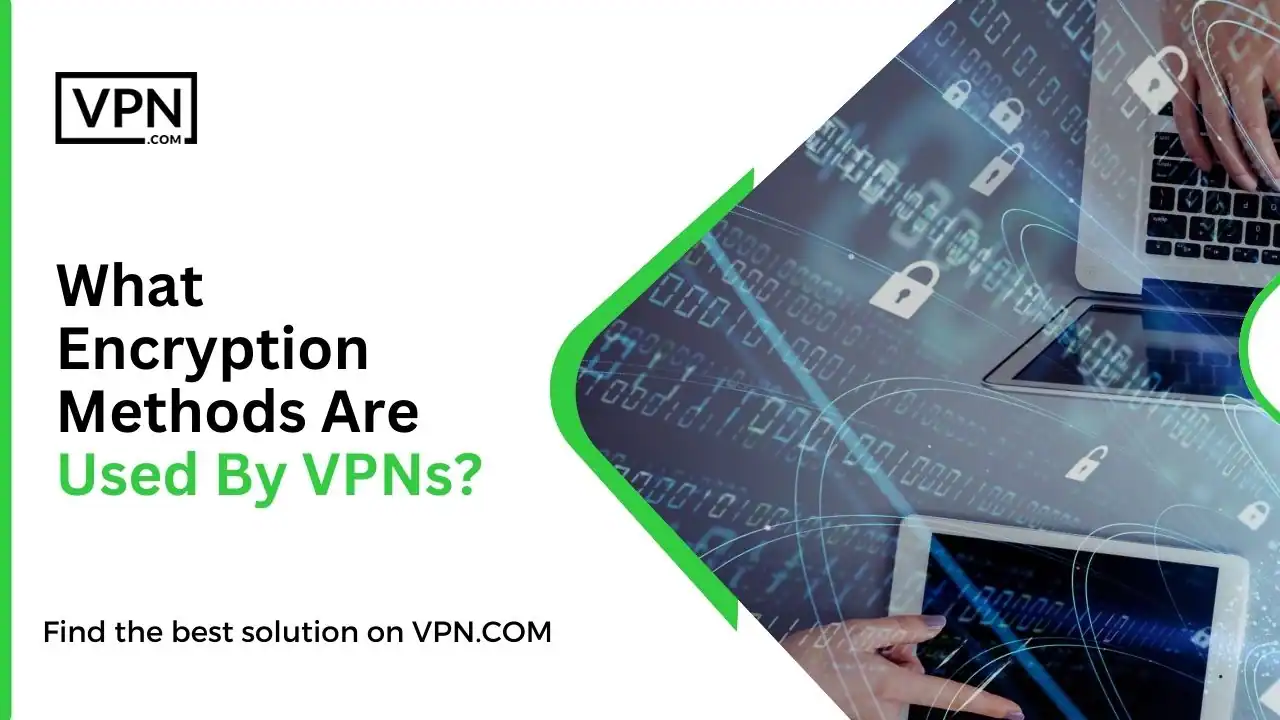
Imagine that your VPN encryption is your packed tool shed. Here every tool has its own special job of keeping all your data safe. VPNs are going to use a variety of these tools to avoid criminals reaching out to your data. However, let us explain you in detail that what encryption methods are used by VPNs:
Symmetric Encryption
It is a basic concept that was used back in Roman times. Let us explain it to you with an example. Take it as a secret code or a handshake that two friends share. If both friends know the code. It means that they can share secrets. But if you are not in the loop. Then you are left guessing. It’s an easy method where the sender and receiver use the same code or key to understand the message. Without this shared knowledge – the message stays hidden.
AES Encryption
If you fast forward from old tricks to today’s tech wonders – you will find AES (Advanced Encryption Standard). It is the most used ciphers nowadays. Think of this as a jigsaw puzzle. The message gets split into many little pieces which are then shuffled around.
Only with the right pattern can you put the pieces back together and read the message. The hardest jigsaw puzzles have more pieces and in the world of VPN Encryption – the toughest puzzle to solve is the AES-256.
Public-key Encryption
Think of it like a mailbox with a unique setup. Anyone can drop a letter inside by using the public key. But only the owner of the mailbox has the key to open it and read the letters. This keeps the messages safe because even if someone tries to snoop. They can’t open the mailbox without the private key.
However, this encryption will also become useless if hackers will lay hands on the private key. So, it is very important to keep that key private.
Transport Layer Security
It provides a system of authentication between servers and users, Imagine this as a two-step handshake system. The VPN Encryption will double-check that you are the real deal and not someone fraud. It is an added layer of trust before the main conversation begins. It ensures that no outsider can pretend to be you or the VPN.
By understanding these tools, we see the lengths to which VPNs go to create a solid protective barrier around your online actions.
What Are Different Types Of VPNs?
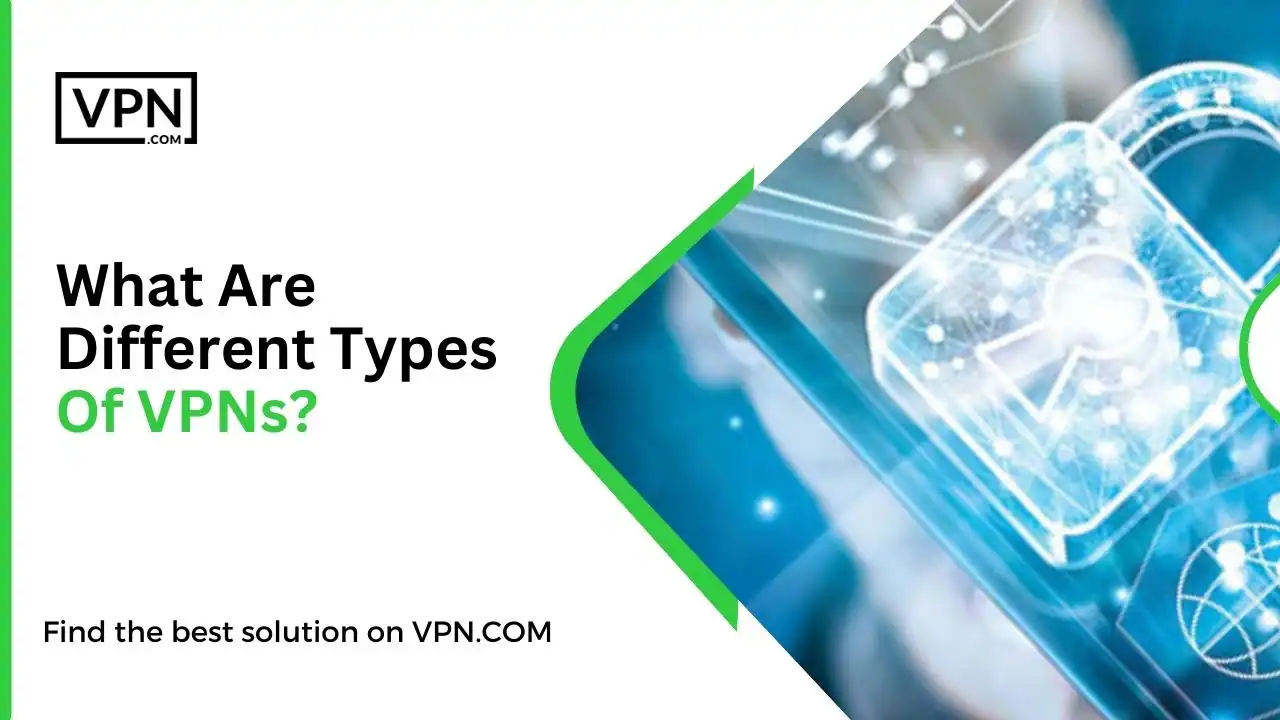
There is a variety of VPNs out there and you can choose the one that suits you the best.
Remote Access
This is the kind of the VPN Encryption that most of the people are familiar with. It is similar to dialing into a super secure computer from your own device. This distant computer is going to make sure that all your data is saved in a protective layer. It will keep all your online activities safe.
Intranet Site-to-Site Access
When we talk about Intranet Site-to-Site access. We always say that you should think of it as a special bridge which is built to connect different computers together. It doesn’t matter where in the world you are. It will make sure to keep you connected. These VPN Encryption are often used in businesses. It lets teams from different places work as if they are side by side.
Teams by using this VPN can easily chat and share whatever is inside this encrypted bridge. But once we are inside, we don’t need any kind of special codes to talk.
Extranet Site-to-Site Access
This kind of VPN is kind of different from the intranet type. It basically connects two separate group networks. Imagine that two big countries are working together on a big project. They will each have their own private networks. The extranet VPN is like a safe hallway that will help them meet in the middle, chat and share files. However, in all this procedure their home bases will be secure.
Each of these types of vpn encryption serves a unique purpose. It helps users find the best fit for their needs. If you are not sure where to find the best VPN encryption then we would suggest you try getting it from VPN.com. It is the most trusted platform when it comes to buying VPN.

Get Started w/ NordVPN Today
- Top-rated VPN for OS unknown
- Ultra-fast speed in US in 2024
- Save 69% off with VPN.com Discount
- Plans starting at $2.99/month
- Rated 4.5/5 on Google Play with over 825,000 reviews
- Rated 4.7/5 on Apple App Store from 6,600 users
How Can We Use The Right VPN Encryption?
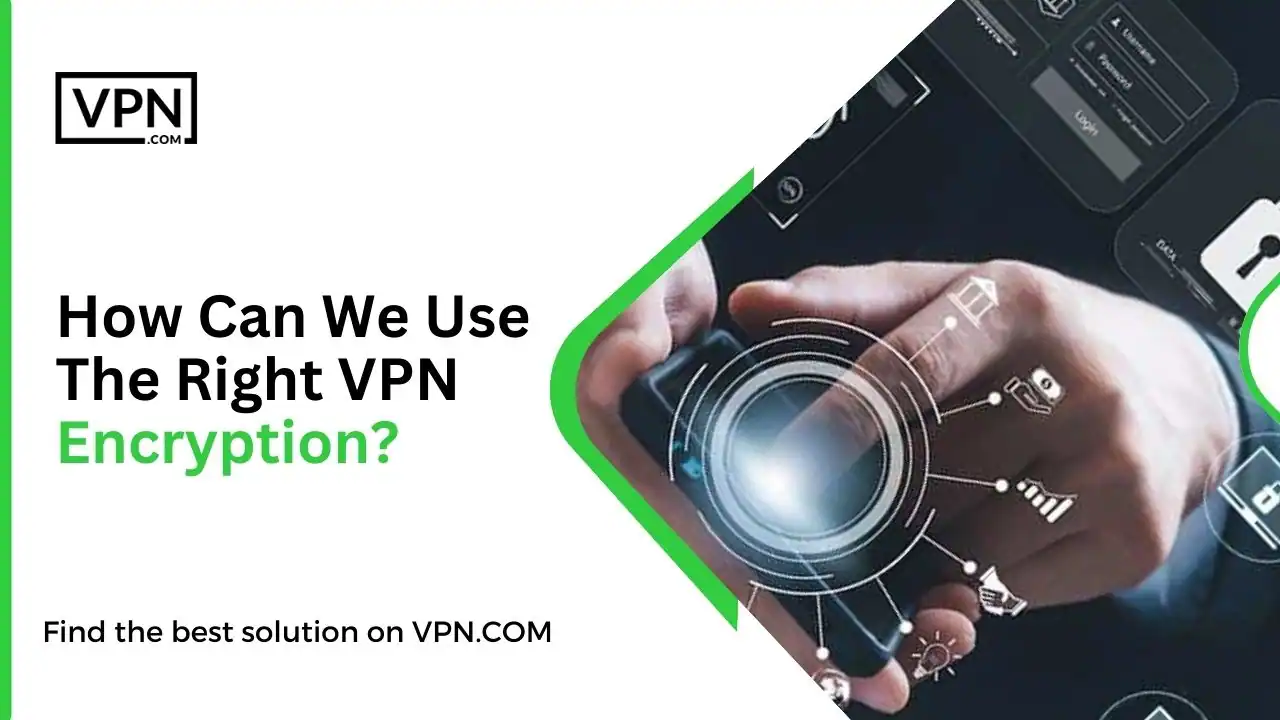
We know that choosing the right VPN Encryption can be very hectic too. Because there are so many options out there in the market. And every option seems best from other options. However, here is a detailed guide that will help you figure out what kind of VPN you are actually looking for.
Split Tunneling
Split Tunneling feels like you are using two roads at the same time. It is going to let you use your normal internet and VPN and encryption together. It is even going to save you a lot of money if your VPN has limits on how much data you can use and not.
Multi-hop Technology
People use it when they don’t have anyone to track their activity. In simple words we can say that your data is going to take a few different paths. It will make it harder for anyone to track you. It will feel like you are taking detours to confuse someone who is trying to follow you. So, if you want to dodge your followers then we think it is the best way to do so.
Streaming Support
There are many VPN Encryption out there that play nice with streaming services. While there are some other VPNs that don’t. So, if you are also one of those people who loves streaming then you should find a VPN that is friendly with your favorite websites.
Torrenting Support
Are you also a torrent lover? Because there are some VPN Encryption that will support torrenting. These VPN encryptions will let you download files without letting anyone know. If that is your thing then you should ensure that your VPN is going to offer it.
Kill Switch
This is a VPN safety feature that we ask everyone not to ignore. If you are working and your VPN gets switched off accidently. Then a kill switch will ensure that you are not exposed to any threat by turning off your internet connection.
Privacy Policy
We suggest everyone read the privacy policy before choosing a VPN Encryption. It is going to tell you what a VPN is going to keep track of. The best VPNs are those who are not going to take note of your activities when you contact them.
Location
It matters which VPN Encryption home country you are using. There are some countries who might force you to share company data with you. You should ensure to do research on the VPN that you are getting.
Encryption Tools & Protocols
VPNs use different safety tools. The best ones usually use strong safety measures like AES-256 encryption.
Speeds
We know that all VPNs slow things down a bit. But there are some VPNs that are faster than others. To analyze which one is the best you should look at upload, download, and latency speeds. It will ensure smooth browsing.
Price
VPN prices vary a lot. Some VPNs will offer you discounts for long-term plans. When you compare costs. You should see how many devices you can connect at once. You should see if there is a data limit and other features they offer.
In the end, we will just ask you to compare VPNs side by side to see which offers the best value. Good luck with your choice!
Why Is VPN Encryption Important?
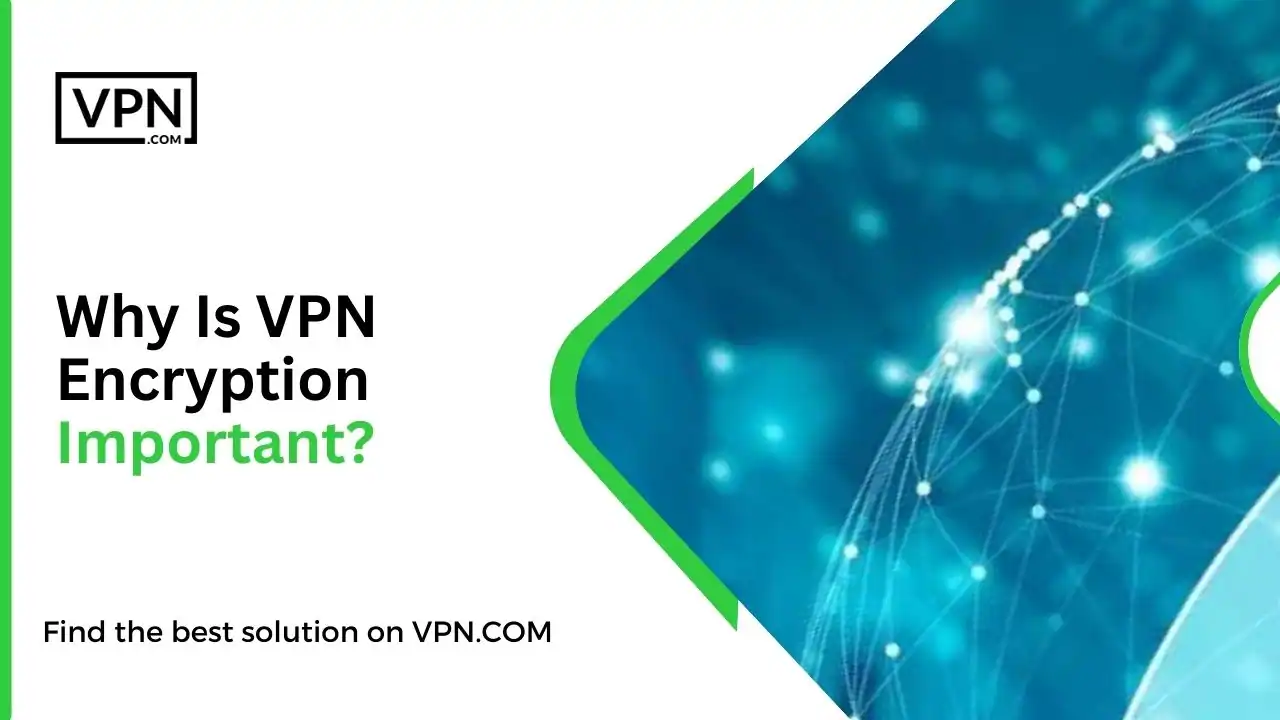
When we talk about encryption we all know that it is just like a protective shield for our personal and national safety. Let us explain you why its is important:
For Personal Safety
With more frauds and scams on the internet nowadays – encryption will ensure to keep us safe. You should think of end-to-end encryption as a secret code. It makes sure that our private online chats and information stays private. It is just like a digital lock, making sure that online right people can have access to our data and keeping away criminals from it.
For Our Country’s Safety
End-to-end encryption also ensures to protect our country at any cost. It will keep our spies, terrorists and other bad actors from sneaking into our important chats and computer systems. It means that they can’t mess things like our country’s electricity or personal data. It is essential for police, military and other officials who have to handle all the top secrets.
However, we can sum it by saying encryption is a safety net. It makes sure that our private chats and country’s important information is guarded against the threats.
Are VPNs Safe To Use?
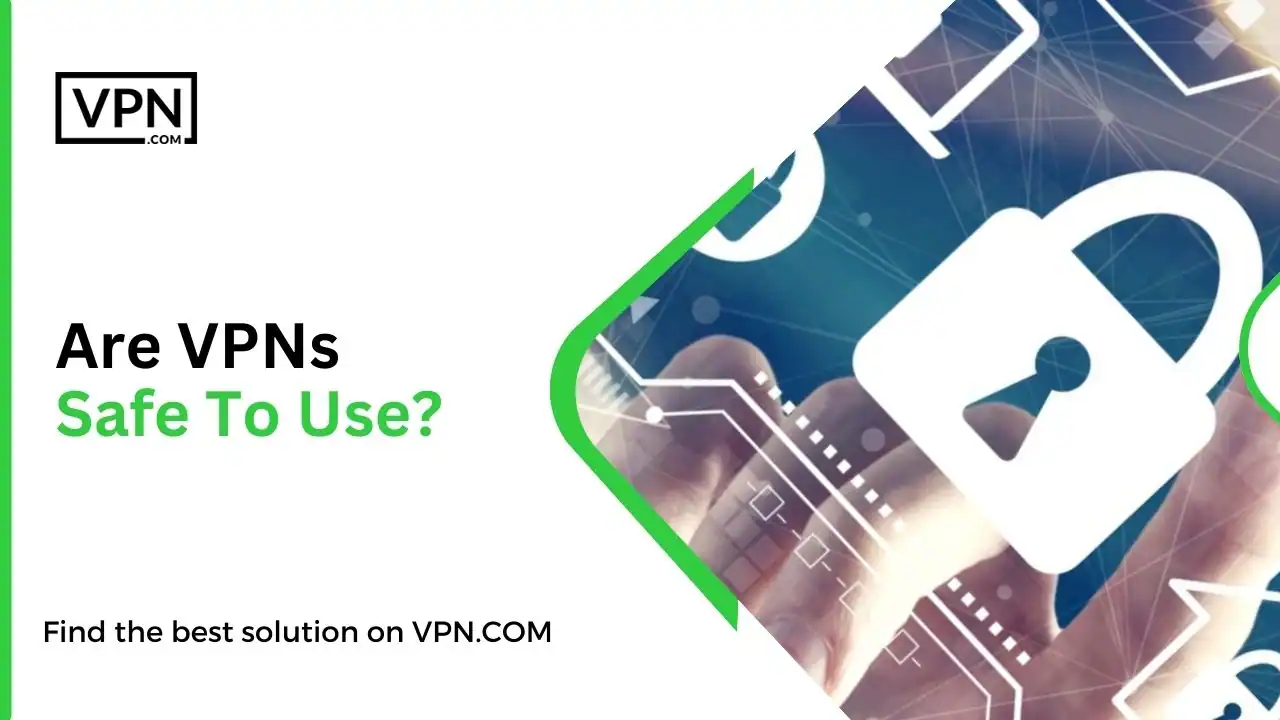
Let us clear something up. VPNs are not the same as anti-virus software. While VPNs hide your online tracks and keep your internet activities private. They can’t stop harmful stuff like viruses. For that, you will need good anti-virus software. Just using a VPN Encryption will not shield you from threats like Trojans or other harmful programs.
If something bad gets onto your device, it can still cause problems whether you have a VPN or not. So, for the best protection. You should always use both a VPN Encryption and an antivirus program together.

Get Started w/ NordVPN Today
- Top-rated VPN for OS unknown
- Ultra-fast speed in US in 2024
- Save 69% off with VPN.com Discount
- Plans starting at $2.99/month
- Rated 4.5/5 on Google Play with over 825,000 reviews
- Rated 4.7/5 on Apple App Store from 6,600 users
Conclusion
A VPN link will create a safe bridge between you and the online world. Through this VPN Encryption, your online activity travels safely in a protected tunnel. This hides your IP address and makes it hard for others to guess where you are. Only you have the key to see the data in this tunnel. You can keep unwanted eyes away. With VPN Encryption, you can see online content that might be blocked in your country. VPN.com has VPN Encryption solutions for both Windows computers and Apple Macs.
Now, there are many companies offering VPN Encryption services for phones to keep your mobile activity private. You can find trusted ones in the Google Play Store or the iOS App Store. But remember – a VPN Encryption only hides your online activity. It won’t protect you from threats like hackers, viruses, or malware. So, it’s a good idea to also have reliable anti-virus software.
However, if you still have any questions to ask. Then go ahead. We will be more than happy to assist you.
Customer Reviews for NordVPN: In-Depth Review, Tests, and Stats

Connection issues with MLB.TV
May, 2 2023

Prompt customer service
May, 6 2023

I would highly recommend
December, 15 2023



